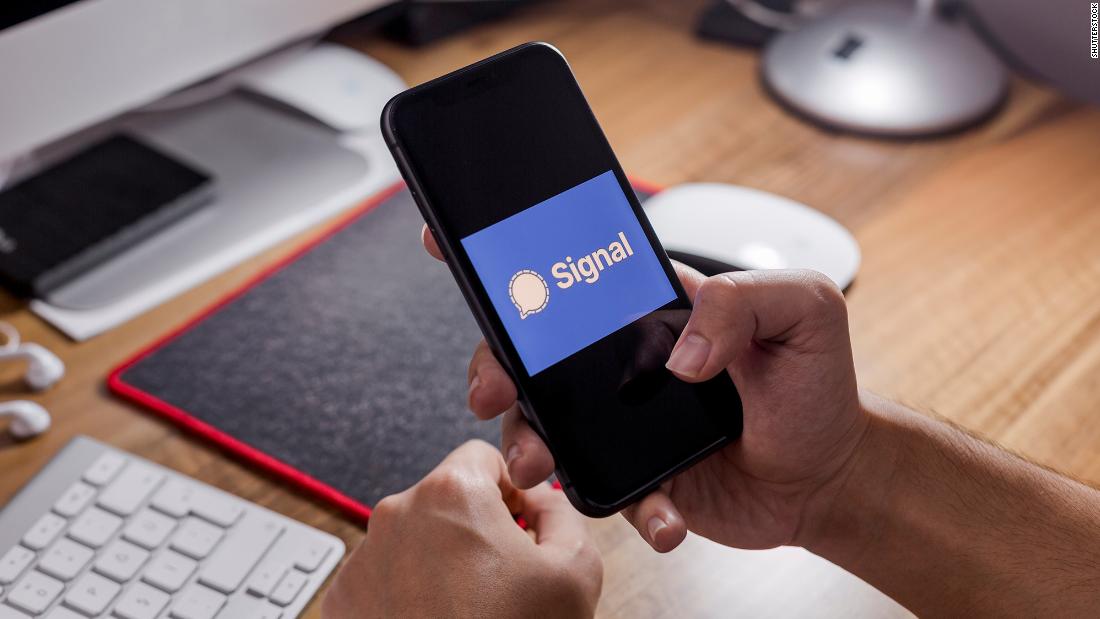Signal had around 7.5 million installs worldwide from the App Store and Google Play between Thursday and Sunday, more than 43 times the installs it received the week before, according to business intelligence firm Sensor Tower .
Encrypted messaging services like Signal have gained popularity in recent years as people become more concerned with protecting their private information. However, this particular bump in Signal usage follows confusion over an updated terms of service notification from Facebook-owned WhatsApp encrypted messaging service.
Signal also received endorsement last week from several of Silicon Valley’s biggest names, including Tesla CEO Elon Musk.
Signal’s huge surge in traffic caused some problems. Thursday Signal
tweeted that verification codes for new user registrations could be delayed “because so many new people are trying to join Signal right now (we can barely register our enthusiasm).” The issue was resolved over the weekend.
“We currently have an all-time high downloads for the Signal app worldwide,” Signal staff said in a Reddit post on Friday.
What’s going on with WhatsApp?
WhatsApp started notifying users last month of its updated terms of service and privacy policy, which people must agree to to continue using the app beyond February 8.
Many users have expressed concerns about a section of WhatsApp’s privacy policy that details user data collected and shared with parent company Facebook, which has a troubled reputation for protecting user data.
All private messages between individuals and most businesses on WhatsApp are protected by end-to-end encryption, which means the app cannot view or share them with Facebook (users will be notified before chatting with a business where messages are not end-to-end. -end encrypted). But WhatsApp collects other user information, like how and when someone uses the app, as well as user device information like IP addresses.
WhatsApp’s privacy policy states that user information it collects may be shared with other Facebook companies “to help operate, provide, improve, understand, personalize, support and market our services and their offerings.”
However, these data sharing practices are not new, according to the company.
Here’s what has changed: WhatsApp’s privacy was last updated globally in 2016. At the time, it offered WhatsApp users the option to opt out of data sharing with Facebook, a option that was only available for a short time. In this latest update, the reference to this now expired opt-out option has been removed.
The most important policy update concerns business users of WhatsApp. It reveals that companies that using WhatsApp to talk to customers can choose to store logs of their conversations on Facebook hosting services.
“The update does not change WhatsApp’s data sharing practices with Facebook and has no impact on the way people communicate privately with their friends or family wherever they are in the world,” A spokesperson for WhatsApp said in a statement, adding that the company remains “deeply committed to protecting people’s privacy.”
In short: No additional WhatsApp user data will be shared with Facebook after agreeing to the new terms than previously shared. In other words, unless you took advantage of the opt-out in 2016.
WhatsApp has tried to clear up confusion over the updated policy, including posting an FAQ on its privacy practices.
Why Signal?
While the policy is not new, the dust has drawn attention to WhatsApp’s data sharing practices with Facebook that many people may not have read before hitting “agree.” This may encourage users to get off the ship, with Signal proving to be the most popular alternative.
Signal is another free app that provides encrypted messages, calls, and video chats. “Encrypted” means that the contents of the messages are scrambled until they reach the recipient, and no intermediary can view them. The app is run by the non-profit Signal Foundation, which was launched in 2018 with help from WhatsApp co-founder Brian Acton, who left WhatsApp and Facebook the year before.
Acton said in a 2018 statement announcing the foundation’s launch that Signal aims to build “sustainable technology that respects users and does not rely on the commodification of personal data.”
Amid the rush for new listings, Signal is
deploy new features similar to those of WhatsApp, such as wallpapers for chats and an “about” section for user profiles. And a new one
Apple (AAPL) The policy requiring apps to provide a label detailing their privacy practices on the App Store can make it easier for users to compare the policies of various email apps.
Signal did not immediately respond to a request for comment regarding the rush for new listings.
The app has received high-level recommendations.
You’re here (TSLA)‘s Musk on January 7
tweeted: “Use Signal.”
Twitter (TWTR) CEO Jack Dorsey
retweeted he, and later
posted an image of Signal at the top of the App Store graphic, captioning it with a heart.
Former NSA contractor Edward Snowden also
retweeted Message from Musk, adding the message: “This is @signalapp, for those who don’t speak Elon.”
Although their tweets do not mention Facebook or WhatsApp, Musk and Dorsey have previously criticized the social media giant.
However, some people were apparently confused about Musk’s advice. Actions of Signal advance (SIGL) – a small Texas-based tech company unrelated to the messaging app – grew more than 6,000 percent in the days following Musk’s tweet, before tempering on Tuesday.
Signal, the messaging app, posted a cheeky tweet about the confusion, saying, “Do stock analysts mean when they say the market is giving mixed signals?”
